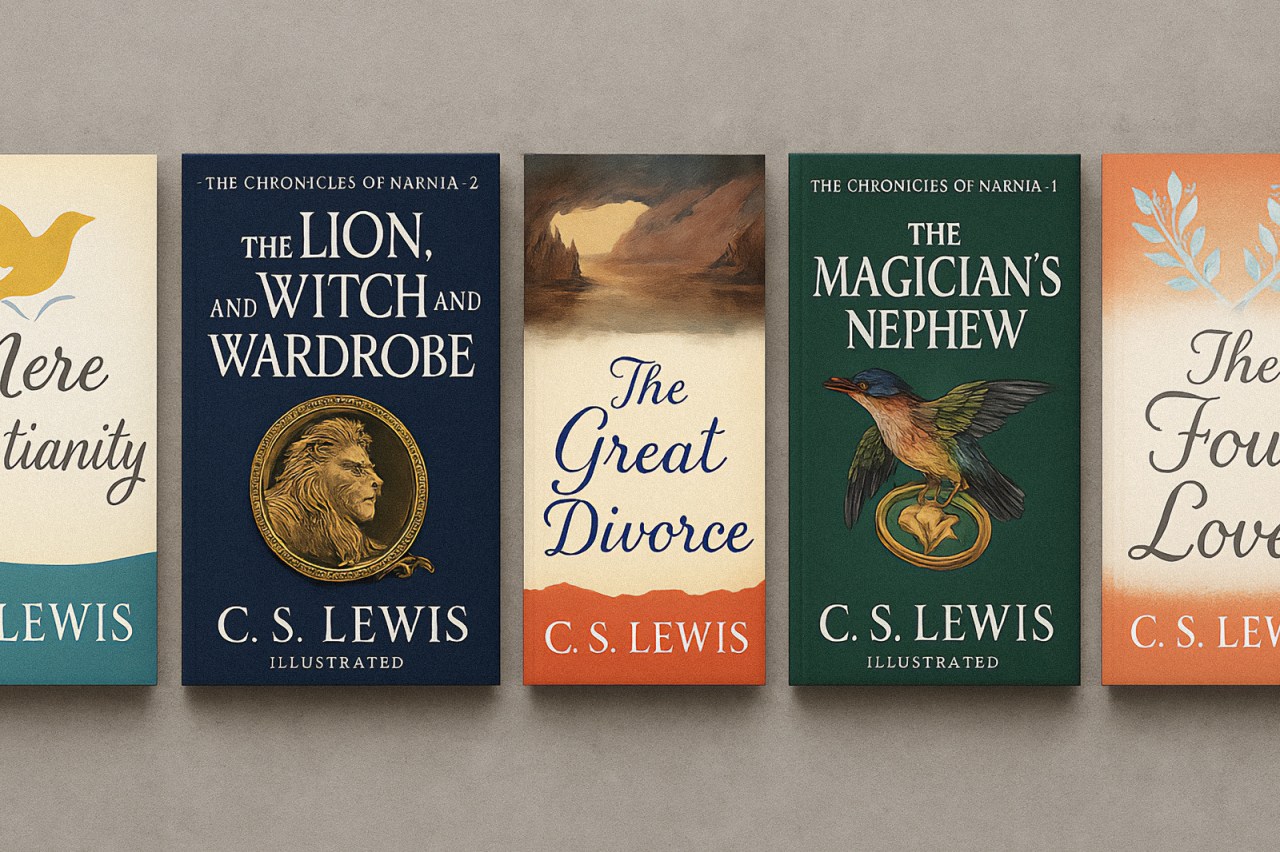CS Lewis, in addition to penning the Chronicles of Narnia series, was one of the most prolific Christian thinkers of the 20th century. You don’t have to be a Christian, however, to appreciate the wisdom presented in the following quotes. Enjoy.
On originality
Even in literature and art, no man who bothers about originality will ever be original: whereas if you simply try to tell the truth (without caring twopence how often it has been told before) you will, nine times out of ten, become original without ever having noticed it.
On the loss of a friend
“In each of my friends there is something that only some other friend can fully bring out. By myself I am not large enough to call the whole man into activity; I want other lights than my own to show all his facets. Now that Charles is dead, I shall never again see Ronald’s [Tolkien’s] reaction to a specifically Charles joke. Far from having more of Ronald, having him “to myself” now that Charles is away, I have less of Ronald…In this, Friendship exhibits a glorious “nearness by resemblance” to heaven itself where the very multitude of the blessed (which no man can number) increases the fruition which each of us has of God. For every soul, seeing Him in her own way, doubtless communicates that unique vision to all the rest. That, says an old author, is why the Seraphim in Isaiah’s vision are crying “Holy, Holy, Holy” to one another (Isaiah 6:3). The more we thus share the Heavenly Bread between us, the more we shall have.”
On desire
“It would seem that Our Lord finds our desires not too strong, but too weak. We are half-hearted creatures, fooling about with drink and sex and ambition when infinite joy is offered us, like an ignorant child who wants to go on making mud pies in a slum because he cannot imagine what is meant by the offer of a holiday at the sea. We are far too easily pleased.”
On the nature of our neighbors
“There are no ordinary people. You have never talked to a mere mortal. Nations, cultures, arts, civilizations – these are mortal, and their life is to ours as the life of a gnat. But it is immortals whom we joke with, work with, marry, snub, and exploit – immortal horrors or everlasting splendors.”
On Hell
“There are only two kinds of people in the end: those who say to God, “Thy will be done,” and those to whom God says, in the end, “Thy will be done.” All that are in Hell, choose it. Without that self-choice there could be no Hell. No soul that seriously and constantly desires joy will ever miss it. Those who seek find. Those who knock it is opened.”
On making idols
“There is something in natural affection which will lead it on to eternal love more easily than natural appetite could be led on. But there’s also something in it which makes it easier to stop at the natural level and mistake it for the heavenly. Brass is mistaken for gold more easily than clay is. And if it finally refuses conversion its corruption will be worse than the corruption of what ye call the lower passions. It is a stronger angel, and therefor, when it falls, a fiercer devil.”
On sex in culture
“If anyone says that sex, in itself, is bad, Christianity contradicts him at once. But, of course, when people say, “Sex is nothing to be ashamed of,” they may mean “the state into which the sexual instinct has now got is nothing to be ashamed of.” If they mean that, I think they are wrong. I think it is everything to be ashamed of. There is nothing to be ashamed of in enjoying your food: there would be everything to be ashamed of if half the world made food the main interest of their lives and spent their time looking at pictures of food and dribbling and smacking their lips.”
On the vastness of existence
“Many a man, brought up in the glib profession of some shallow form of Christianity, who comes through reading Astronomy to realize for the first time how majestically indifferent most reality is to man, and who perhaps abandons his religion on that account, may at that moment be having his first genuinely religious experience.”
On pride
“Pride gets no pleasure out of having something, only out of having more of it than the next man. We say that people are proud of being rich, or clever, or good-looking, but they are not. They are proud of being richer, or cleverer, or better-looking than others. If someone else became equally rich, or clever, or good-looking there would be nothing to be proud about. It is the comparison that makes you proud: the pleasure of being above the rest. Once the element of competition has gone, pride has gone.”
On humility
“Humility is not thinking less of yourself, but thinking of yourself less.”
On hope
“There are far, far better things ahead than any we leave behind.”
On appearances
“A cold, self-righteous prig who goes regularly to church may be far nearer to Hell than a prostitute.”
Finally, on perseverance
“What saves a man is to take a step. Then another step.”
